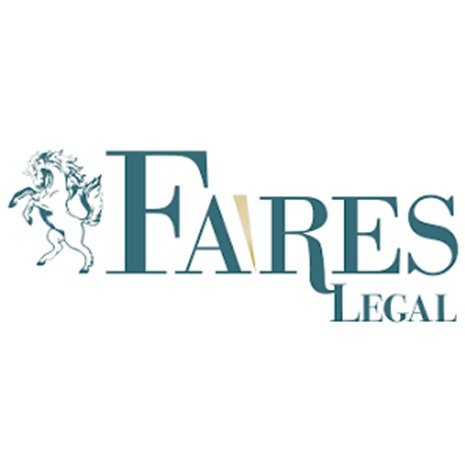Best International Trade Law Lawyers in Libya
Share your needs with us, get contacted by law firms.
Free. Takes 2 min.
Or refine your search by selecting a city:
List of the best lawyers in Libya
About International Trade Law in Libya
International Trade Law in Libya encompasses the regulations and rules governing commerce and trade across Libya's borders. This includes the movement of goods, services, and investments, as well as the protection of intellectual property rights and dispute resolution mechanisms. Libya's legal framework for international trade may be influenced by its trade agreements with other nations and participation in international organizations. The Libyan government continues to evolve its policies and regulations to foster economic growth and integrate with the global trading system.
Why You May Need a Lawyer
There are several scenarios in which individuals and businesses may require legal assistance in the field of International Trade Law in Libya:
- Contract Negotiation: Businesses engaging in cross-border transactions may need help drafting contracts to comply with international and Libyan laws.
- Customs and Tariffs: Navigating the complexities of import/export duties and tariffs can necessitate expert legal guidance to avoid penalties.
- Dispute Resolution: Legal representation is crucial in resolving trade disputes and ensuring fair treatment under arbitration or litigation.
- Compliance: Companies must adhere to various compliance regulations, including trade sanctions, import/export controls, and quality standards.
- Intellectual Property Rights: Protecting intellectual property in international trade requires a specialized understanding of both local and international laws.
Local Laws Overview
Key aspects of Libyan laws relevant to International Trade Law include:
- Customs Law: Governs the processes and duties associated with importing and exporting goods.
- Investment Law: Provides the framework for foreign direct investment, promoting international economic participation.
- Trade Agreements: Libya's bilateral and multilateral trade agreements can impact how businesses operate in international markets.
- Sanctions and Embargoes: International sanctions potentially affecting trade with Libya must be acknowledged and navigated properly.
- Anti-money laundering (AML) and counter-terrorist financing (CTF): Compliance with these laws is crucial for businesses engaged in international transactions.
Frequently Asked Questions
What is International Trade Law?
International Trade Law deals with the laws and regulations governing trade between countries, including exports, imports, trade agreements, and international business transactions.
What are common legal issues in international trade for Libyan businesses?
Common legal issues include contract enforcement, currency exchange controls, the impact of international sanctions, and compliance with international trade agreements.
Do I need a lawyer for exporting goods from Libya?
While not mandatory, having a lawyer can help ensure compliance with relevant laws, facilitate smoother transactions, and handle any disputes that arise.
How can a lawyer assist with trade compliance in Libya?
A lawyer can help businesses understand and comply with Libyan trade laws, international trade agreements, and sanctions that may affect trading activities.
Can a lawyer help with international trade disputes?
Yes, a lawyer can represent a business in arbitration or litigation and help negotiate settlements to resolve international trade disputes.
Are there specific licenses required for international trade in Libya?
Depending on the goods or services, specific licenses may be required for international trade. A lawyer can help determine and obtain necessary licenses.
What are some common terms in international trade contracts?
Common contractual terms include payment terms, delivery, risk of loss transfer, dispute resolution methods, and choice of law clauses.
What role do trade agreements play in Libya's international trade law?
Trade agreements set the framework for trade relations between Libya and other countries, impacting tariffs, market access, and other regulatory measures.
How does Libyan law address intellectual property in international trade?
Libyan law provides protection for intellectual property rights, which are crucial for businesses to safeguard their innovations in international markets.
Who can I contact for issues related to international sanctions on Libya?
It is advisable to contact legal counsel well-versed in international trade law to navigate sanctions-related issues effectively.
Additional Resources
Several resources and organizations can be helpful for those seeking legal advice in International Trade Law in Libya:
- Libyan Ministry of Economy and Trade: Responsible for foreign trade policies and regulations.
- Libyan Customs Authority: Deals with customs regulations and import/export duties.
- Chamber of Commerce: Provides support and guidance on international trade matters.
- International Chamber of Commerce (ICC): Offers resources and support for international business operations.
Next Steps
If you need legal assistance in International Trade Law in Libya, consider the following steps:
- Consult with a qualified lawyer specializing in International Trade Law to understand your rights and obligations.
- Gather necessary documentation and information related to your trade activities or issues.
- Consider reaching out to relevant trade associations or government bodies for additional guidance and support.
- Stay informed about any changes in Libyan trade laws or international trade agreements that may affect your operations.
Whether you are starting a new venture or navigating an existing issue, professional legal counsel can provide invaluable support and ensure compliance with the evolving trade landscape in Libya.
Lawzana helps you find the best lawyers and law firms in Libya through a curated and pre-screened list of qualified legal professionals. Our platform offers rankings and detailed profiles of attorneys and law firms, allowing you to compare based on practice areas, including International Trade Law, experience, and client feedback.
Each profile includes a description of the firm's areas of practice, client reviews, team members and partners, year of establishment, spoken languages, office locations, contact information, social media presence, and any published articles or resources. Most firms on our platform speak English and are experienced in both local and international legal matters.
Get a quote from top-rated law firms in Libya — quickly, securely, and without unnecessary hassle.
Disclaimer:
The information provided on this page is for general informational purposes only and does not constitute legal advice. While we strive to ensure the accuracy and relevance of the content, legal information may change over time, and interpretations of the law can vary. You should always consult with a qualified legal professional for advice specific to your situation.
We disclaim all liability for actions taken or not taken based on the content of this page. If you believe any information is incorrect or outdated, please contact us, and we will review and update it where appropriate.
Browse international trade law law firms by city in Libya
Refine your search by selecting a city.











